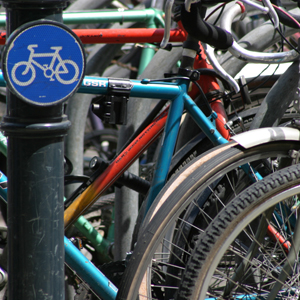 In choosing the civic challenge for the Worcester incubator, the Advisory Council members submitted a number of possibilities and sought proposals from their connections throughout the city.
In choosing the civic challenge for the Worcester incubator, the Advisory Council members submitted a number of possibilities and sought proposals from their connections throughout the city.
The incubator staff received 11 ideas in different stages of development. Working with the Council and the president of the EcoTarium, different proposals were discussed, combined and filtered. The winning choice contained elements of 3 or 4 of the original proposals:
“… research, plan, and develop new transportation solutions to enhance Worcester’s economic productivity, connect its neighborhoods and communities, and improve the quality of life for its residents and visitors.”
The notes below are adapted from the winning proposal:
- Primary goals include improving access to and interest in alternative transportation (walking, biking, public transit). Ancillary benefits include building social movement through new technology, public art, education, and civic engagement.
- The challenge is an excellent opportunity to develop and practice specific STEM skills such as measurement, mapping/geography, statistics, economics, meteorology, engineering, and social media.
- Research and development issues include:
- What are our best opportunities to combine economic development with alternative transportation?
- How should we apply best practices to improve walking and biking conditions/facilities?
- How do we entice people to travel by foot, bus, or bike? (digital walking tours, smart phone technologies, public events and exhibits)?
- How do we increase public approval/appreciation/acceptance of improvements to pedestrian and bicycle conditions (traffic calming, street narrowing, etc.)?
- In which neighborhoods would increased use of alternative transportation bring larger benefits (more vibrant neighborhoods, economic development, enhanced community)?
The community considered the question: why this innovation challenge for Worcester? Below are some answers:
Worcester Challenges:
Isolated neighborhoods, challenging urban design (highway and railroad lines cutting across city); isolated college campuses; lack of public process/civic participation & input over transportation decisions; bike thefts resulting from increasing bike use and difficult economic times.
Worcester Opportunities:
Ongoing partnerships already addressing public health ( Health of Worcester 2012 , Safe Routes to School ), environmental ( Climate Action Plan, 2006;Energy Task Force ), and engineering ( Complete Streets ) aspects of transportation challenges; 30,000 college students attend 9 Worcester-based and 3 greater Worcester-based colleges or universities (most of them of an age where physical activity is easy and where it’s possible to do without a car); opportunity to engage Worcester residents in decisions about public transit and transportation infrastructure; Worcester Regional Transit Authority’s $3.6 million investment in Intelligent Transportation Systems (ITS) technology (one of the few cities in the U.S. to have purchased the entire suite of technologies); success of stART on the Street (now 10 years old) and development of historical Canal District ; opportunities for Open Streets events.

